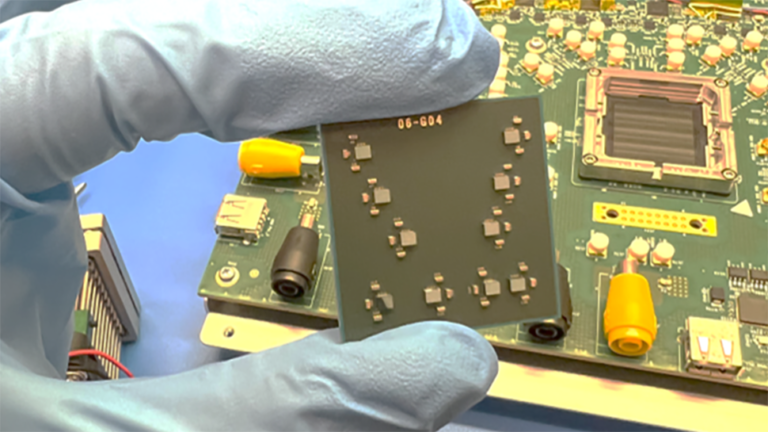A Chinese company has developed a new miniature radiation detection chip that measures just 15mm x 15mm x 3mm and consumes just 1 milliwatt of power when running.The chip could be installed in all kinds of mobile phones and drones.
As efforts to increase the nation’s semiconductor self-sufficiency intensify, state-run nuclear power company China Nuclear Corporation (CNNC) has unveiled the development of a breakthrough radiation detection chip.
According to an official statement on CNNC’s WeChat channel, the chip can monitor radiation levels in a wide range of environments and can be adapted to multiple environments such as nuclear-related workplaces, personnel monitoring, and environmental safety inspections.
The chip measures dose rates from 100 nanosieverts (nSv) per hour to 10 millisieverts (mSv) per hour, and provides a It can cover a variety of use cases, up to specific industrial scenarios.
Versatile uses and high sensitivity
The chip can also detect radiation energy from 50 kiloelectronvolts (keV) to 2 megaelectronvolts (MeV). This range covers both X-rays and gamma rays, making it useful for industries such as medical, nuclear, and environmental monitoring.
The chip measures just 15mm x 15mm x 3mm and consumes just 1 milliwatt of energy during operation. Despite its small size, the chip has a sensitivity comparable to traditional Geiger-Mueller counters, which are widely used for environmental radiation measurements.
The company announced that mass production of the chip has begun, marking an important milestone in China’s technological advancement in radiation sensing applications.
The achievement is seen as part of a broader strategy to overcome trade and technology restrictions imposed by the United States, particularly in the semiconductor sector.
“High-tech development cannot be begging for. We must accelerate the realization of a high degree of technological independence and self-improvement,” President Xi Jinping said during a visit to Hefei, a high-tech hub in the southeast, according to China’s state-run Xinhua news agency. No need.”
CNNC envisions a wide range of applications beyond industrial use, saying the chip could be integrated into consumer devices such as smartphones and drones. This could enable smart devices to provide real-time radiation detection, opening new possibilities for consumer and environmental safety applications.
Development of this chip includes the entire semiconductor manufacturing cycle, including chip design, tape-out, packaging, and testing. Mass production was outsourced to a “certified factory,” but details of the partner have not been disclosed.
Via SCMP

